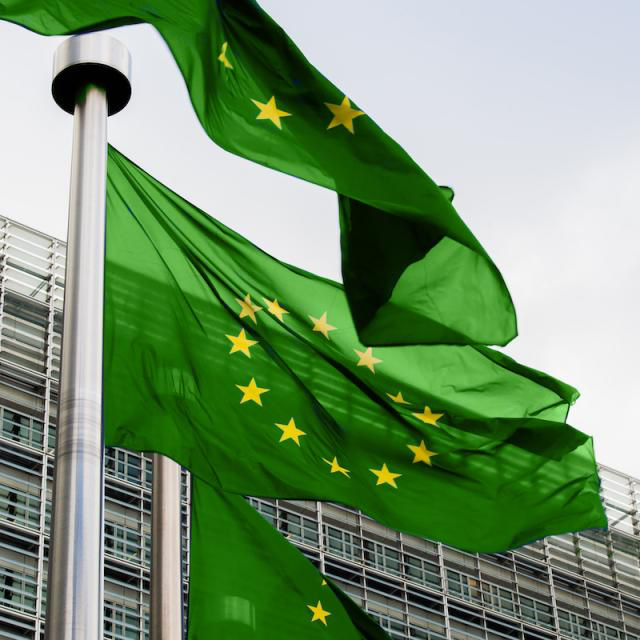A respected international academic has questioned the legality of removing parliamentary passes for ExxonMobil employees.
It comes after the Greens/EFA group in parliament claimed that ExxonMobil refused to attend a recent parliamentary hearing on the company’s alleged role in funding climate change denial. The group sent a letter to Parliament’s President Antonio Tajani and the assembly’s Secretary General Klaus Welle formally requesting that the company’s lobby access badges be removed.
But Professor Daniel Gueguen, of the Bruges-based College of Europe, has argued that the request could be in breach of the Parliament’s rules of procedure.

Gueguen, a former Director-General of the European sugar lobby and former Secretary General of COPA-COGECA (the association of European farmers), said, “Every year I start my course at the College of Europe by reminding my students of one of the key principles the European Union is built on: the rule of law as laid down in Article 2 of the Treaty on the European Union.This is a pivotal and fundamental value for the EU.This principle is not only applicable with regard to EU member states but applies just as much to its own institutions.”
He said he was reminded of the two articles with the Greens request, adding, “It made me wonder about how strictly this principle is actually applied within the EU institutions.”
“In the public communication by the same political group, I understand that the matter will be ‘decided’ in a meeting of the Conference of Presidents. If this were the case, it would represent a kind of confusion of power that is hardly in line with these principles.”
Gueguen, Visiting Professor at the College for the last 4 years, said the rule on removing access badges is a very strong “sanction with potentially severe repercussions.”
He said, “We can expect that it is applied after thorough scrutiny and without political motivation.”
The only bodies that should be involved in taking a decision to remove badges are – in accordance with parliament’s own rules of procedure – the Quaestors and the Secretary General, he said. “This indicates that the matter is considered as an administrative one, meaning that although political groups can ask for the removal of badges – the administrative bodies (Quaestors and Secretary General) need to take this decision in an apolitical way ensuring that they carefully assess the case at hand and evaluate notably the justifications provided.”
The rules of procedure,he noted, also refer to the fact that the badge(s) can only be withdrawn if no “sufficient justification” can be provided by the person/company concerned.
“Again,” he says, “there is no specification of what this entails.”
Another parliamentary rule, he said, speaks about withdrawal or de-activation of badges. “I can only assume that there is a difference between the two – but again, this is not specified.”
He goes on, “In the interests of legal certainty, the distinction should be “very clearly drawn”, adding, “After all, one (withdrawal) seems much more far-reaching than the other.”
Gueguen, associate partner at EPPA, a consultancy firm, added, “The removal of badges is a very serious sanction as it ultimately prevents the exercise of a fundamental right of any citizen to participate in the normal democratic process. The ‘sanction’ can only be the result of a strict administrative process led by the Quaestors and the Secretary General, evaluating the various elements of the case and considering the principles of the rule of law and proportionality when taking their decision.
“Such a measure in my view cannot be (and cannot be seen to be) taken on the basis of politics, nor can it be used at any point in time to win political gain, particularly in the run-up to elections.”

Molly Scott Cato, Greens/EFA MEP who signed the request commented, said, “It is important that Exxon have their lobby badges removed to defend the credibility and integrity of the European Parliament as an institution that has the power to hold people and corporations to account. If we want a real democracy in Europe, the Parliament needs to show that it is serious when it organises public hearings on important issues – especially on issues as important as climate denialism. Corporations that have engaged in a campaign of disinformation that has put millions of lives as risk must face the consequences.”




